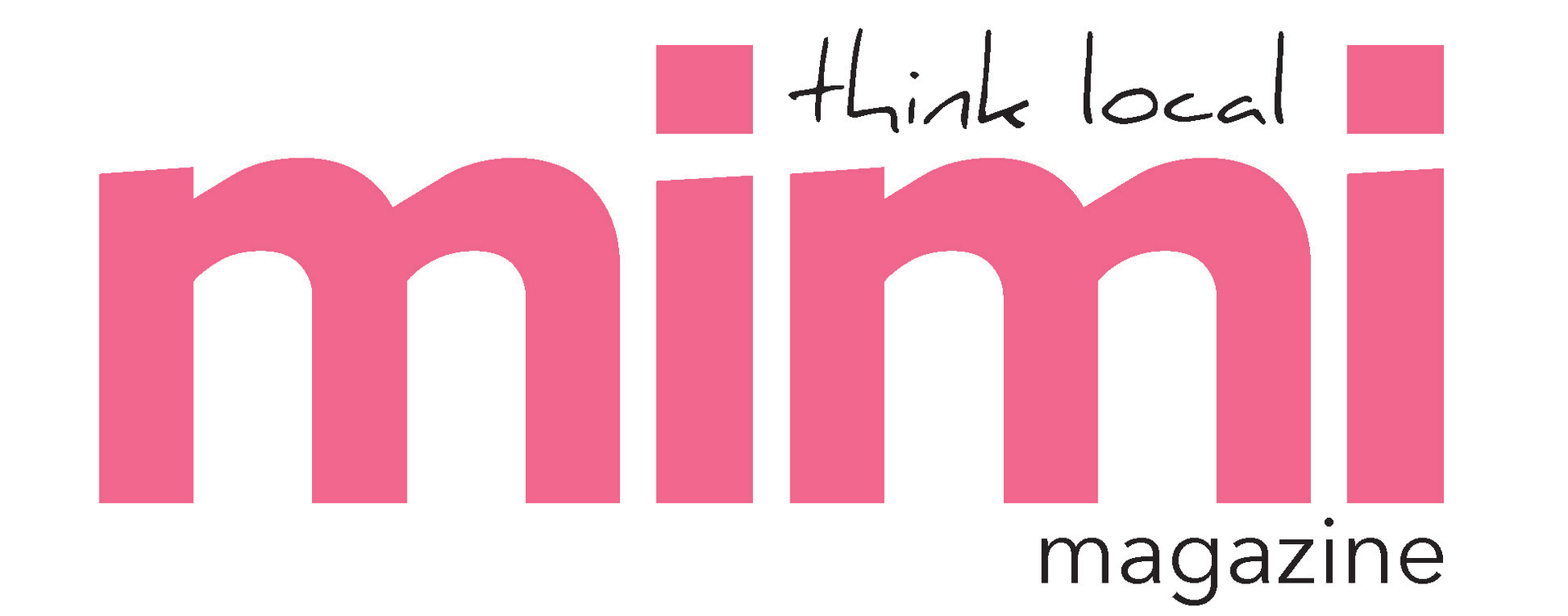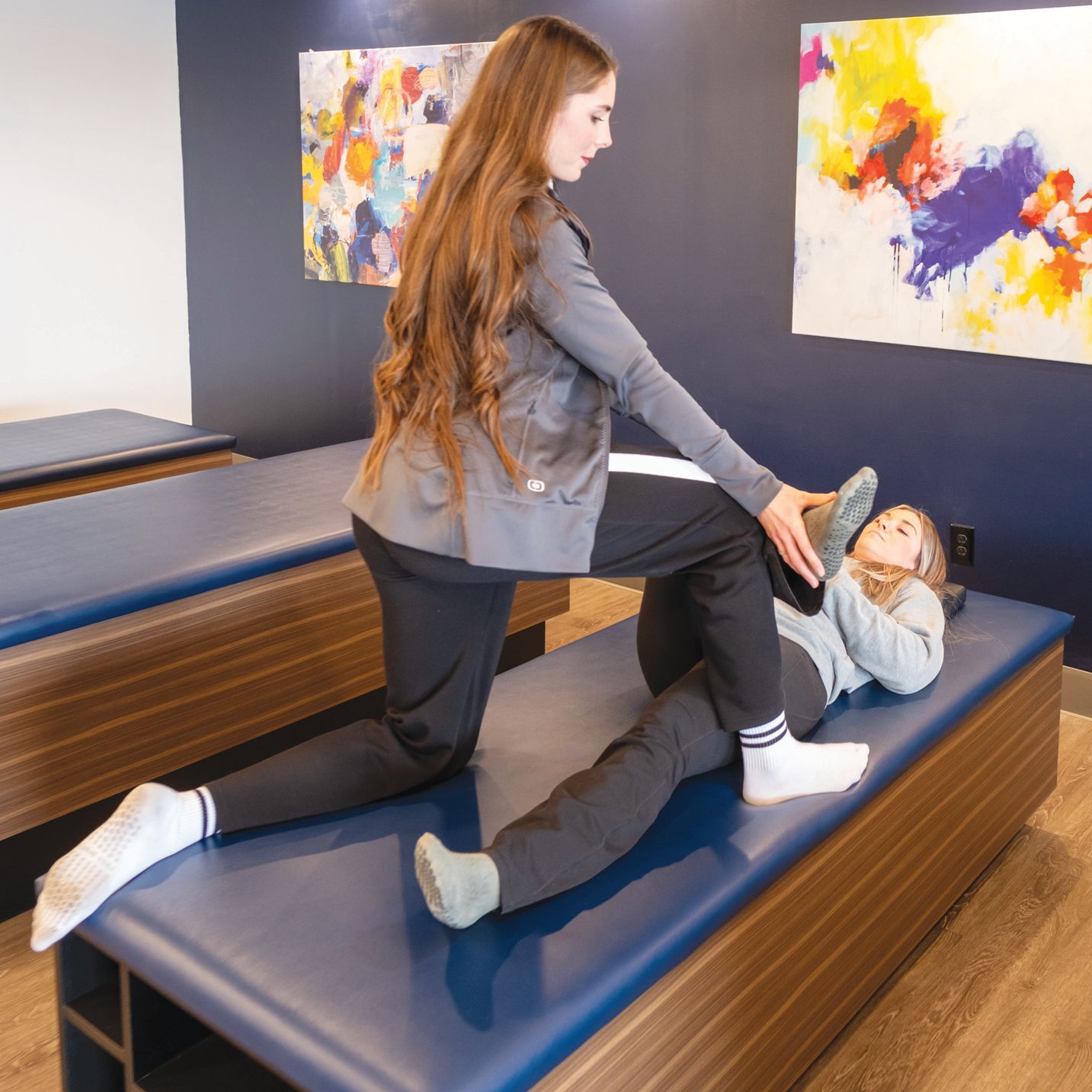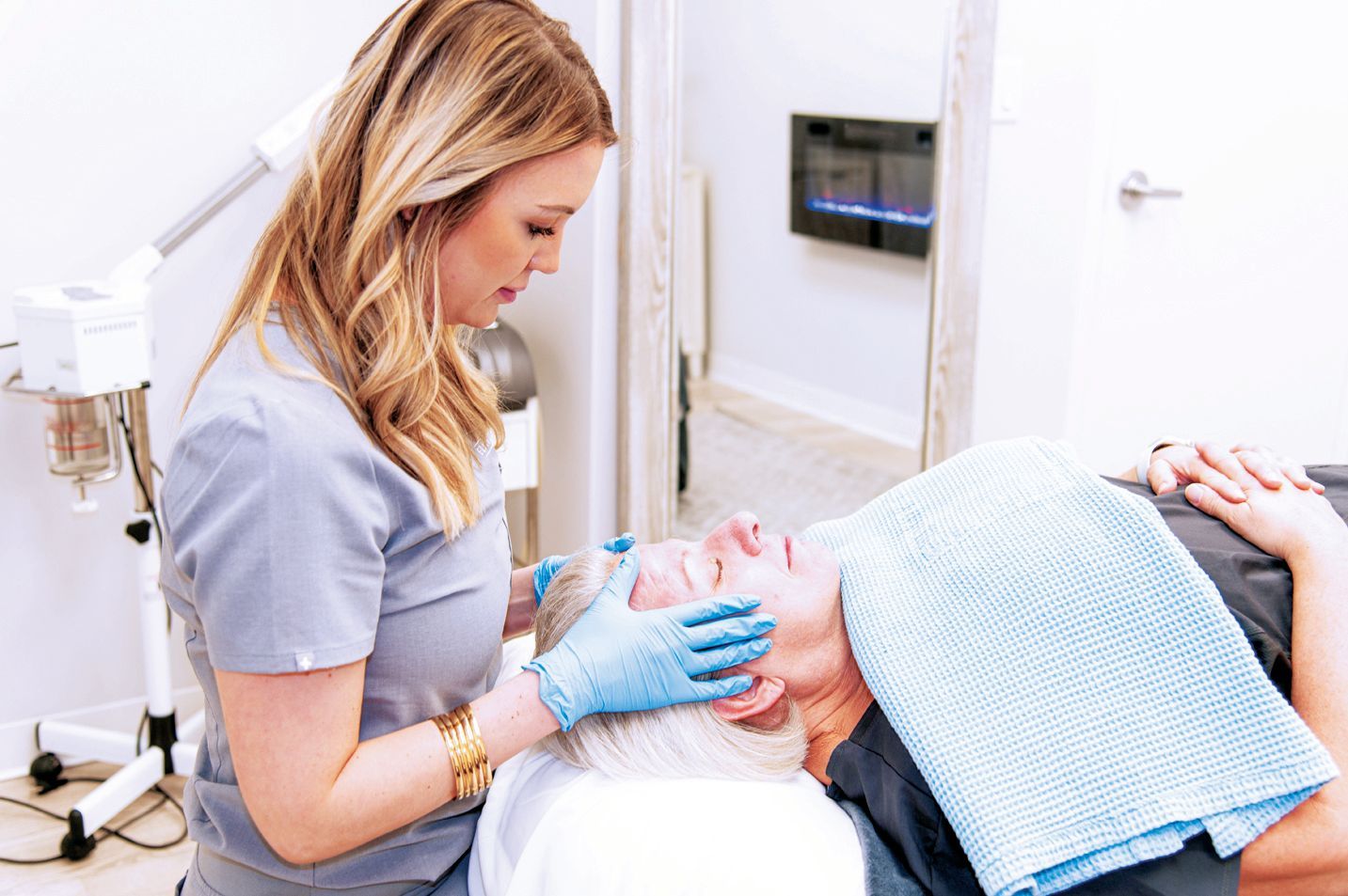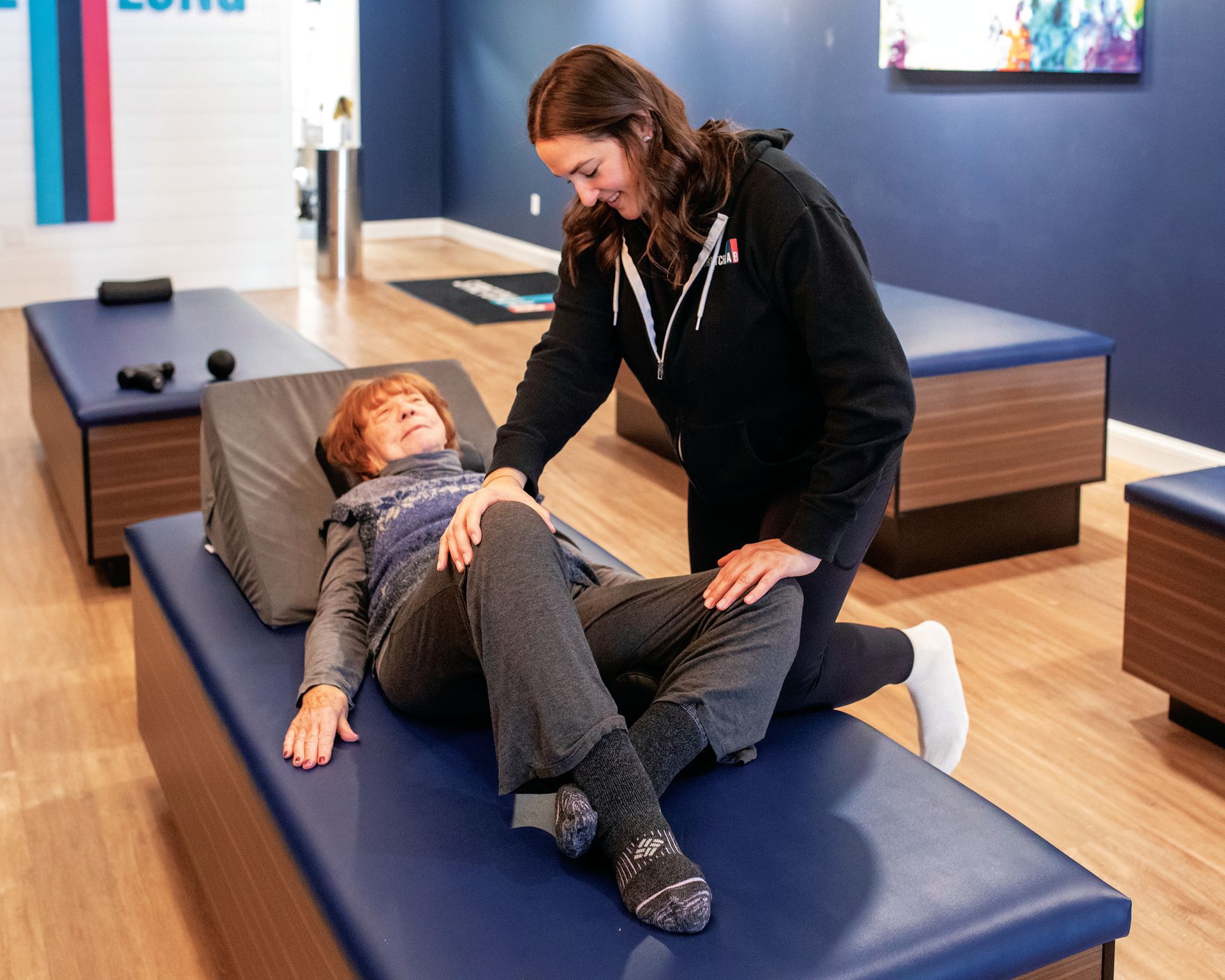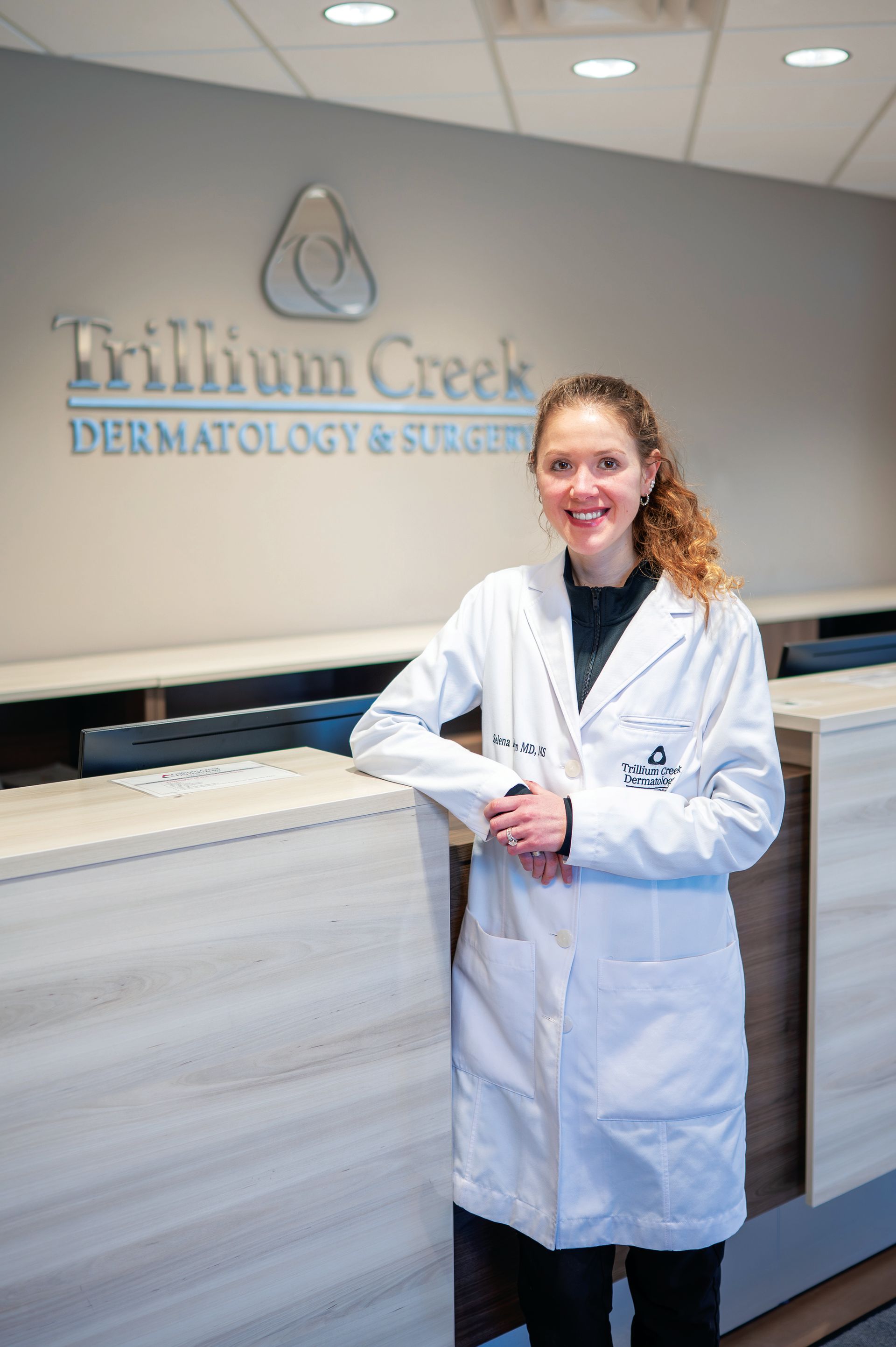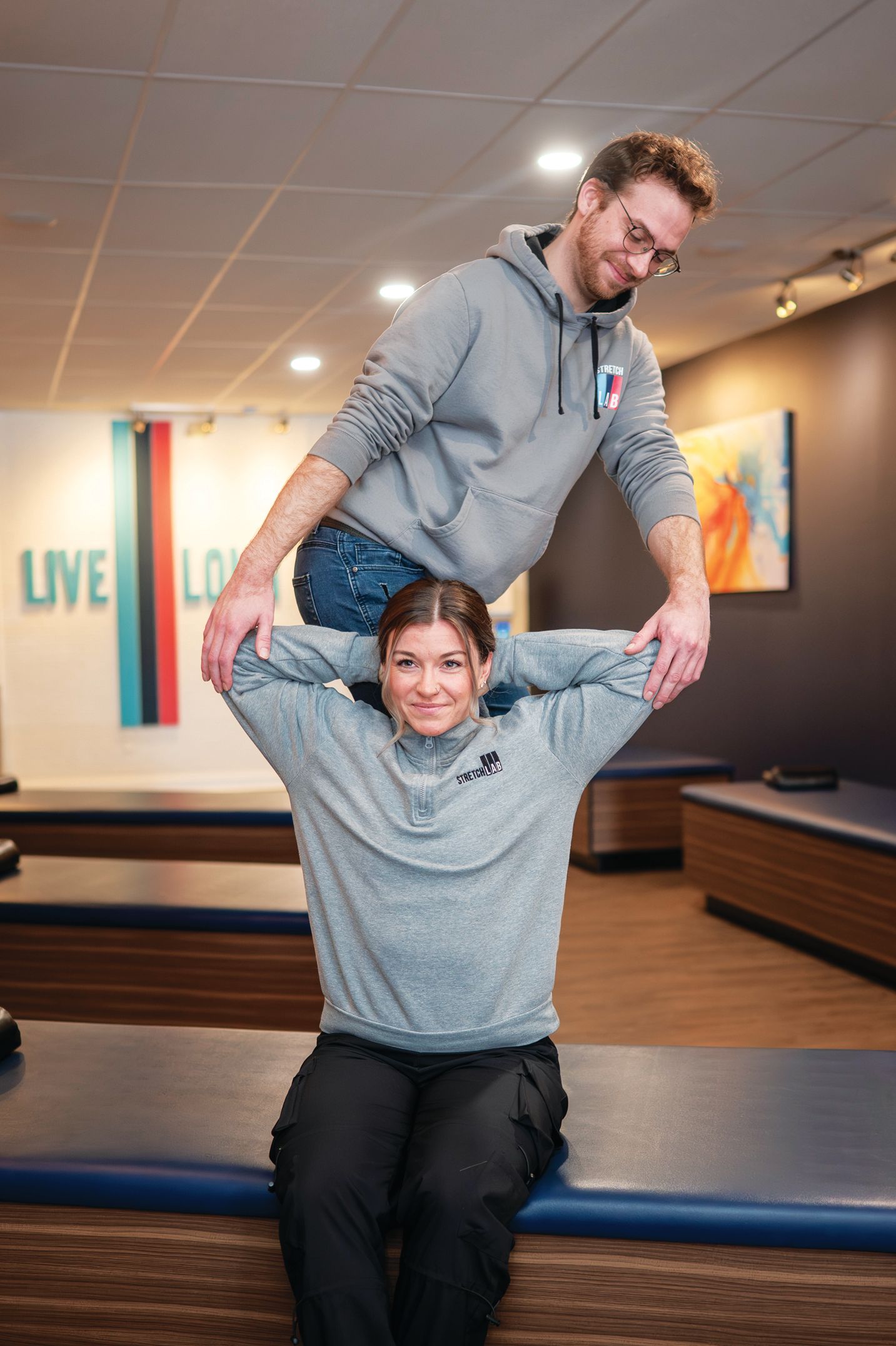UH Ahuja has heart
University Hospitals Harrington Heart & Vascular Institute at UH Ahuja Medical Center offers basic to complex treatment for heart and vascular issues, so your care can happen close to home.
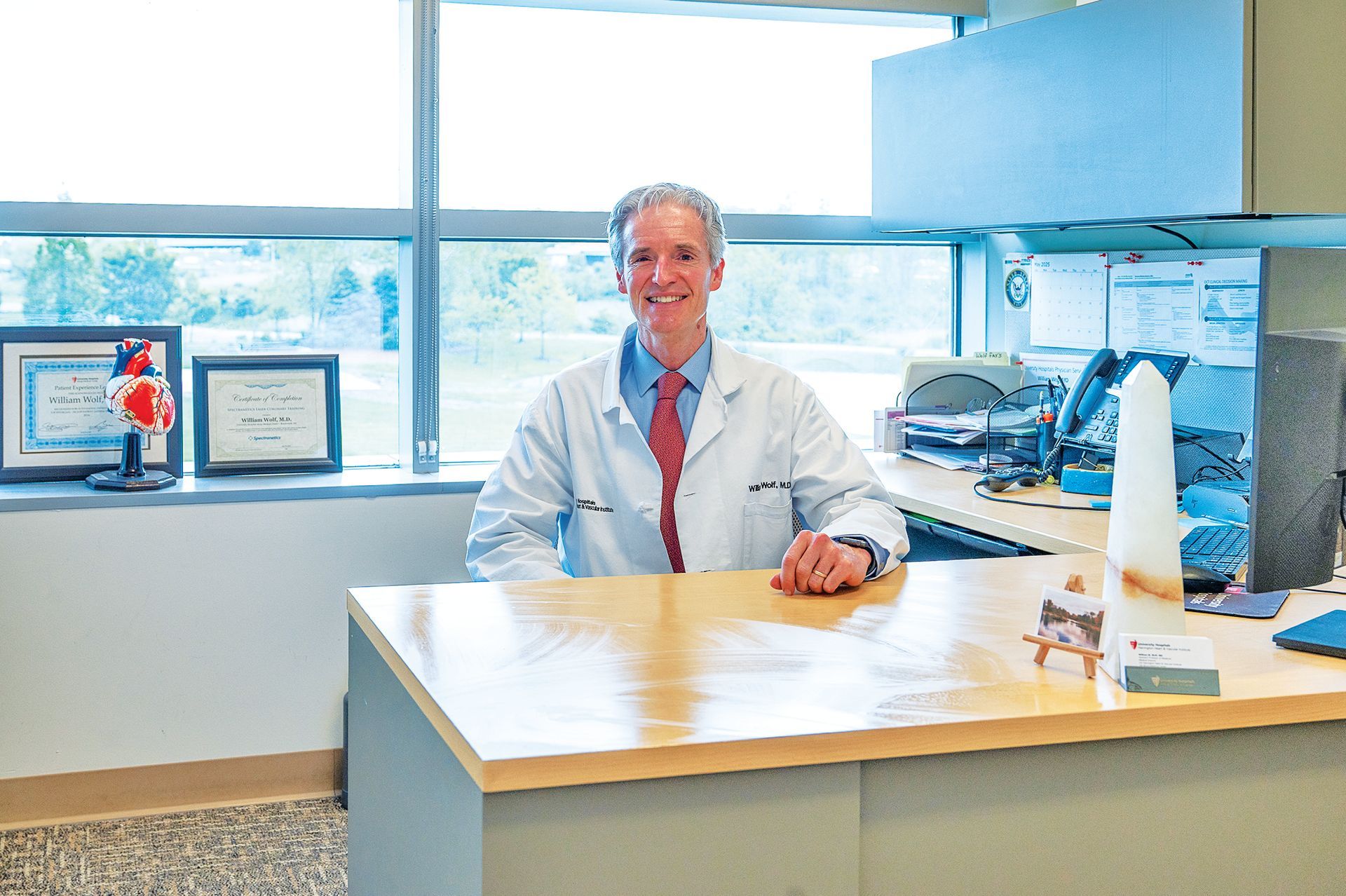
William Wolf, MD, Medical Director of UH Harrington Heart & Vascular Institute at UH Ahuja Medical Center, is renowned for his ability to open blocked arteries and restore blood flow in moments in crisis. His ultimate goal, however, isn’t just to save lives in an emergency. It is to prevent the emergency from ever happening. (Photograph: Adrienne Rose)
As an interventional cardiologist at University Hospitals Harrington Heart & Vascular Institute at UH Ahuja Medical Center, William Wolf, MD, is renowned for his ability to open blocked arteries and restore blood flow in moments of crisis. His ultimate goal, however, isn’t just to save lives in an emergency. It is to prevent the emergency from ever happening.
“I stress prevention, so you don’t meet me in an emergency situation,” says Dr. Wolf, Medical Director of the UH Harrington Heart & Vascular Institute at University Hospitals Ahuja Medical Center in Beachwood. “You can reduce your risk for a heart attack with four lifestyle considerations. First and foremost is to stay physically active. The recommendation is 30 minutes of moderate intensity physical activity, which can include brisk walking, on most days of the week.
Coupling exercise with eating a healthy diet and maintaining a healthy body weight will lessen your risk. And if you smoke, quit.”
Dr. Wolf also stresses the importance of taking medications to treat high blood pressure, high cholesterol or diabetes to lower risk of cardiovascular events.
A subspecialty of cardiology, interventional cardiologists use specialized catheter-based techniques to diagnose and treat coronary artery disease. Instead of traditional surgery, these specialists provide a non-surgical way to diagnose and treat heart and blood vessel conditions. They perform procedures using catheters—thin, flexible tubes inserted through arteries or veins—performed in a cardiac cath lab.
“The breadth of precision catheter techniques is resulting in remarkable clinical quality and patient outcomes,” says Dr. Wolf, who earned his medical degree from Georgetown University School of Medicine and continued his postdoctoral training in active military service in the United States Navy, serving as an undersea/diving medical officer. “We are fortunate to have in our community hospital a full-service cath lab that offers all but a few services of the main campus downtown. In addition to treating complex blockages in the heart, UH Ahuja offers comprehensive cardiovascular care, including, cardiothoracic surgery and electrophysiology procedures to treat abnormal heart rhythms with catheter ablations or implanting pacemakers and defibrillators.”
Patients experiencing heart attack symptoms can rest assured they will get superior care at University Hospitals Ahuja Medical Center, as the hospital has outstanding metrics in treatment.
“The gold standard of the “door-to-balloon” time of how long it takes to open a blocked artery is less than 90 minutes, and at UH Ahuja Medial Center our standard time is below 60 minutes,” Dr. Wolf says.
Every minute counts when it comes to heart attack outcomes, so Dr. Wolf stresses to be aware of heart attack indicators and call 911 if you experience any symptoms.
“Present immediately to the hospital if you have chest pain (heaviness, burning, tightness) that can be on either side of the chest, left or right arm pain, neck or jaw pain, shortness of breath, profuse sweating and nausea,” he says. “Though some of these symptoms also may present in other conditions, such as indigestion, reflux or anxiety attacks, it is vital to be checked out.”
University Hospitals Ahuja Medical Center is located at 3999 Richmond Road in Beachwood. For more information call 216-844-3800 or visit UHhospitals.org/Ahuja.
Are You at Risk?
As part of its heart and vascular services and community outreach, University Hospitals Harrington Heart & Vascular Institute at UH Ahuja Medical Center offers a free CT scan that can help predict your risk for a heart attack. Performed during a 30-minute appointment, this Coronary Artery Calcium Score Test consists of a noninvasive scan that measures the amount of calcium buildup in the coronary arteries. The presence of calcium in the arteries is a marker of coronary artery disease—the most common cause of heart attacks.
Who Should Have a Calcium Score Test?
Men and women ages 45 or older with no history of coronary artery disease and with one or more risk factors, including:
- High blood cholesterol
- Low HDL cholesterol (“good” cholesterol)
- High blood pressure
- Cigarette smoking
- Type 2 diabetes
- Chronic inflammatory condition
- Early menopause
- Chronic kidney disease
- Family history of heart disease
Though this is a no-cost test, a doctor’s order is required. Learn more at UHHospitals.org/calciumscore.
Recent Posts
RELATED ARTICLES
